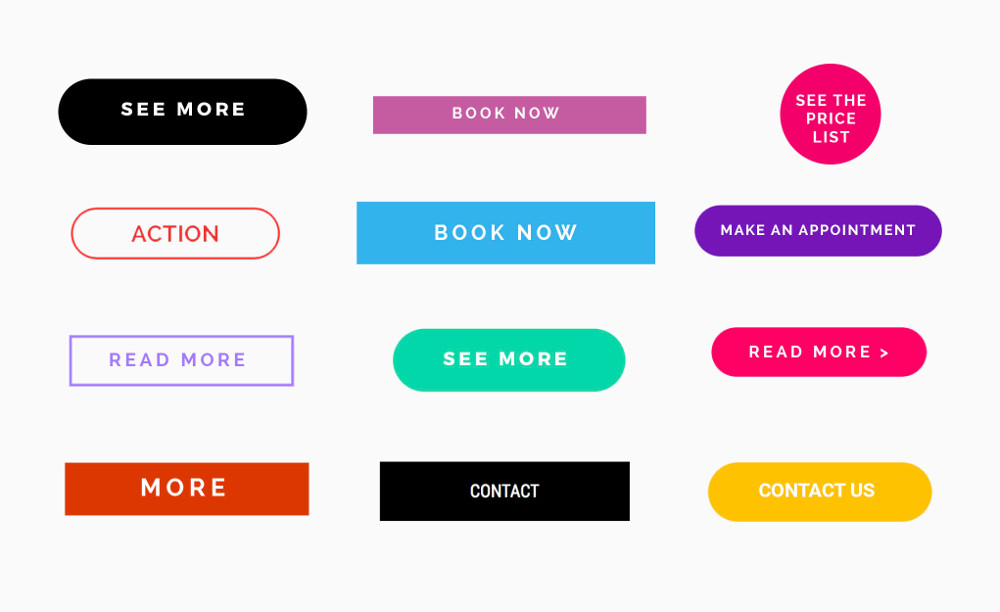Internal links
Internal links are simple redirections to other pages of your website. Internal links can be used differently, like Call-to-Action buttons, or clickable words / sentences. For example, many choose to add a "Contact" button on their homepage to quickly redirect clients to their contact information if needed. Another example may be a particular service company, like a interior designer or a house painter. A button "Click here for a quote," may be interesting for the customers who don’t want to waste time searching for the submission form everywhere on the website. The more internal links you have, the more visitors spend time on your site, which will greatly increase the credibility (according to search engines) of your site, therefore the SEO.
 External links
External links
Backlinks are all links that will make your visitors “enter” your website. First, it is important to “get links” from popular pages and prioritize quality over quantity. There are several choices available to you if you are wondering how to get those backlinks directed to your website. Have you ever heard of comparison websites? If you sell a web product, these sites are product comparators made by people who have tried several and ranking them according to their experience as well as some comments and tips. Being on these sites gives visibility to your site, but only if those comments are positive, obviously. Another example? If you are a hotel, it would be nice to get links from sites like TripAdvisor, but also directory sites, tourist offices or your local website. No matter your industry, you will find many websites where you you could increase your web traffic by figuring on them. You can also create partnerships with companies that have either a similar target audience or an audience you want to reach. Building partnerships can be interesting in terms of visibility, but also for services trades, blog article exchanges, promotion on social networks, and much more! Speaking of social networks, link them to your website to reach as many people as possible.
Other ideas
-
Participating in industry-related forums
-
Contact newspapers, bloggers, etc. to increase your visibility
Outgoing links
You guessed it, outbound links are links that leave your site and redirect your visitors to another website than yours! Remember to redirect people to another site using a new tab or pop-up window (so they don’t “actually” leave your website). The goal is not to make people leave, but to redirect them to pages or websites that might interest them. For example, a partner website, an important source of information or tools to maximize their customer experience!
To conclude, it is important to focus on quality over quantity. Review your website several times a month to make sure that the links still work, you don’t want to send your visitors to a page that is "closed", "missing" or that simply do not exist!